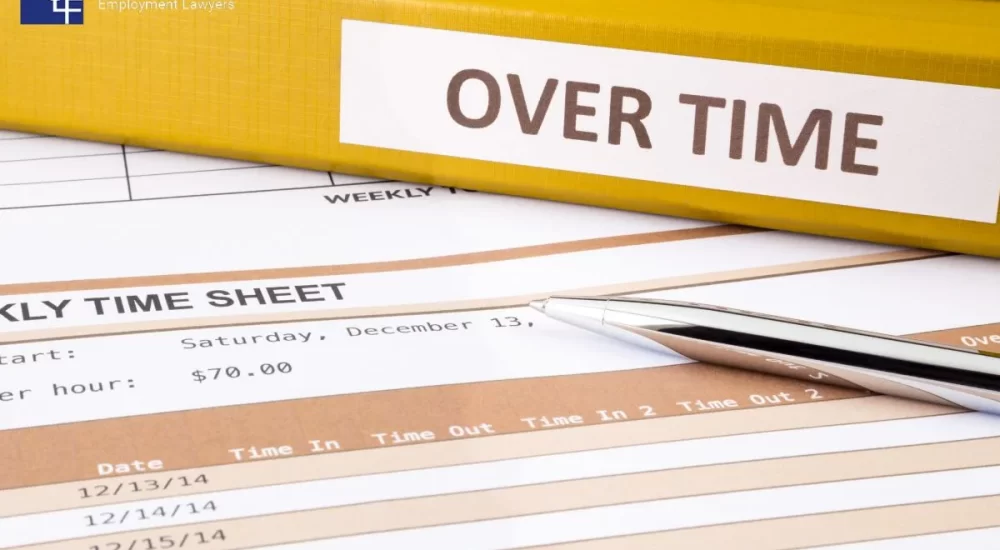California Overtime Law 2025 – What Every Worker Needs to Know

California overtime law can be complex and difficult to understand without the help of an experienced overtime lawyer. The state of California has strict laws around how employees can work and how it affects their overtime pay. These laws are in place to protect employees from being exploited, and they also help to hold employers accountable. Employees deserve to be fairly and justly compensated for the amount of work that they do.
Common Employee Overtime Issues
Employers must pay overtime to eligible employees who work the necessary hours. When an employee works for longer than eight hours in one day or 40 hours in one workweek, they must be paid at a rate of 1.5 times their normal pay. If an employee works for more than 12 hours in one day, they’ll need to be paid double their normal pay rate. However, certain complications can arise. Some common issues that arise regarding overtime rules in California can include:
- Off-the-clock work. There are times when employees are required to do “off-the-clock” work. This could include answering phone calls before or after they clock in or out. In most circumstances, the employer is required to compensate employees for the work that they do while off the clock.
- On-call time. There are also times when an employee is considered to be on call. If the time is spent primarily for the benefit of the employer, then it is considered business, and this time could be compensable.
- Travel time. Generally speaking, travel time to and from work is not compensable under California law. However, travel time during work or travel time that is otherwise at the employer’s discretion can count as compensable hours worked. If your employer denies paying you for travel time, you should speak with an overtime pay attorney.
- Piece rate. Some employees are paid by the piece rather than by the hour. In these instances, the employee is still eligible to be paid overtime, and the employer must do so if applicable.
- Exempt employees. Some employees are exempt from overtime pay altogether. These types of employees include certain white-collar workers, such as those who work in executive or administrative roles or outside salespersons.
But, just because your employer says you are exempt, does not mean legally you are. Many employees are mischaracterized as exempt by their employers and legally owed large amounts of money for overtime and other pay.
The way in which employees are defined under the labor code can be extremely complex. If you have questions regarding your overtime eligibility, you should speak with an overtime attorney who can review your situation and advise you properly.
FAQs
Q: Can You Work Four Ten-Hour Shifts Without Overtime in California?
A: Only in certain cases, can employees work four ten-hour shifts and not get overtime pay. In general, if you work above forty hours in one week, you may be eligible for overtime pay.
Under California law, employers are required to pay overtime to employees who work in excess of eight hours in any workday and for the first eight hours worked on the seventh consecutive day of work. The Department of Industrial Relations outlines the laws and rules for overtime pay in California.
Q: Is Overtime Mandatory in California?
A: Working overtime is not mandatory in California. However, overtime pay is mandatory when an eligible employee completes overtime hours. The overtime rate is one and one-half times the employee’s regular rate of pay. Overtime pay is mandatory in California when an employee works more than eight hours in a day or more than 40 hours in one week.
Certain exemptions to this overtime rule exist. However, these exceptions are fairly rare, and you should speak with an overtime pay attorney if you have questions. Overtime pay can be complex and confusing to understand in some circumstances.
If you believe that you are eligible for overtime pay but did not receive it, you should engage an overtime pay attorney as soon as possible.
Q: Can I Say No to Overtime?
A: In general, your employer could require you to work overtime in some cases. Your employer may dictate your work schedule, and in some instances, that can include overtime hours. It is not uncommon for an employee to be terminated or seriously disciplined if they refuse to work overtime hours. Under California state law, employers have this right if an employee refuses to work overtime hours.
If you find yourself in this situation, you should consult with an overtime attorney to explore your legal options.
Q: What Can an Overtime Attorney Do?
A: An overtime attorney can review your situation and provide the necessary legal advice to help you move forward. They can also help you claim any unpaid wages from your employer. An attorney can advise you on whether filing a claim is necessary or if you should try to resolve it with your employer directly. In the event that your claim goes to court, an attorney can represent you and argue on your behalf.
Explore Your Legal Options
It can be difficult to understand overtime laws in the state of California. Exemptions can be complex, and filing a claim can be hard to navigate. Hiring an experienced overtime attorney with the legal acumen to successfully navigate an overtime case could be the solution that you need. If you believe you have unpaid overtime wages that are owed to you, you may need to contact an overtime attorney.
The legal team at the Shirazi Law Firm, PC, can help you with your overtime case. It is always a wise idea to speak with a legal professional who can properly explain your overtime rights under California state law. Our team has helped individuals all over California with their overtime cases, and we can help you determine whether you have a viable unpaid overtime claim. Contact our office today.


